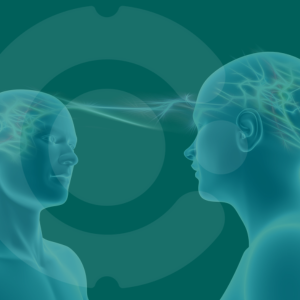Unlocking Career Success
As staffing experts, we’re no strangers to the fierce competition for the most sought-after jobs. Technology advances in machine learning are changing the way businesses work. But can AI replace the human touch?
AI may be super-fast at data processing, but it has its limitations. AI isn’t capable of nurturing meaningful relationships, negotiating tough deals, or inspirational thinking—yet!
In this blog, we explore three soft skills employers value and how the power of the human brain still has the edge over AI. We’ll share practical tips to help your CV stand out from the crowd and get you that interview.
Emotional Intelligence

Emotional intelligence (EI) or emotional quotient (EQ) is a soft skill many hiring managers consider a must-have for new recruits. Artificial intelligence may have a high IQ, but lacks the emotional intelligence needed to interact meaningfully.
According to research by TalentSmart, 90% of top performers have high emotional intelligence. In the AI era, it’s crucial to show your ability to understand and manage your own emotions. Being able to recognise the emotions of others through their words and actions is equally important.
The World Economic Forum’s Future of Jobs Report shows that emotional intelligence will be one of the top 10 job skills employers look for in candidates. Demonstrating strong EI to employers shows how well you’ll work in a team and that you’ll contribute to a positive work atmosphere.
>> Top tips for showing emotional intelligence on your CV
Showcasing your emotional intelligence skills on your CV should be a top priority. Use language in your personal summary that relates to EI, such as inclusive, awareness, perception, and empathy.
When asked about handling stress or team conflict in an interview, discuss your ability to resolve conflicts effectively. Give examples of times you’ve resolved workplace conflicts or solved problems by actively listening, being socially aware, or mediating.
Communication skills
In whatever industry you work, the job description / person specification often lists excellent communication skills as ‘essential’. Research published by Research Gate shows people spend on average 80% - 90% of their time each day communicating with each other.
Effective communication is the foundation of building professional relationships, both inside and outside the organisation. In fact, 86% of workers and managers believe that poor collaboration and communication are the main reasons for workplace failures.
AI may be great at resolving problems or producing funny poems, but it falls short when it comes to meaningful interaction. You can’t have a chat with AI over a cuppa in the staff room, or meet for a drink down the pub.
These watercooler moments and relatable exchanges are at the core of nurturing positive relationships and building strong teams. Employers look for more than just qualifications and experience. They also consider how well a person fits into the team when making hiring decisions.
>> Top tips for showing communication skills on your CV
You can show employers your ability to communicate effectively by offering examples. Include times you’ve worked collaboratively, negotiated successfully, or explained your thoughts clearly when pitching to a client.
You can also add details of any communications courses or training you have taken to your CV.
Importantly, don’t forget to proofread your CV for spelling mistakes! Written communication skills are just as important to employers as verbal and non-verbal communication skills. Consider asking a trusted friend to double check your CV for errors.
Critical Thinking

In today’s competitive job market, critical thinking skills play a vital role for employers seeking top-tier talent. The ability to think critically allows employees to analyse complex problems, make informed decisions, and find innovative solutions.
AI can assist with decision making, but employers cannot rely on it, especially when ethics and morals are involved. Being able to draw on your critical thinking skills is essential.
Although AI can be programmed to make decisions, it cannot understand emotions like sympathy and compassion. This can lead it to make flawed judgements. In these scenarios, there’s a risk the human factor will be missed, and a poor decision will be made.
Employers value critical thinking skills because they enable employees to respond to changing circumstances and unexpected challenges with agility and resilience. Make sure you show your critical thinking skills, including any emotional considerations, on your CV and provide examples.
>> Top tips for showing critical thinking skills on your CV
You can show that you’re a critical thinker on your CV in several ways. Reference a time you worked as part of a team to solve a challenging workplace issue. Demonstrate how you have used critical thinking by gathering information, analysing, and reflecting to problem solve. Remember to include the outcome and the positive impact it made on the business, too.
At an interview, use the Situation, Task, Action, and Results (STAR) framework to explain clearly the decision-making process you took.
Conclusion
AI is no longer just science fiction, it’s science reality—and here to stay folks! Its development signals a new age of working practices, processes, and systems. For candidates, it’s important to show employers all your skills, including those that so far, AI is not capable of showing.
Chatbots are now commonplace on company websites, replacing customer service reps as the first line of defence in resolving customer queries. But, for the moment at least, chatbots are incapable of interpreting sensitive data or replying with the emotional understanding of humans.
Even with the rapid progress being made in developing Emotional AI, human emotions are complex, with many nuances. Emotional AI also raises several ethical and privacy concerns. This means it could be a while before we see Emotional AI fully integrated into daily business operations.
Although artificial and emotional intelligence can be useful in the workplace, employers still value people-centred soft skills. Alongside your work experience, adding emotional intelligence skills, communication skills, and critical thinking skills can make your CV stand out to employers.
Ready for a new career challenge?
Search Jobs
Sources:
https://www.talentsmarteq.com/
https://www3.weforum.org/docs/WEF_Future_of_Jobs_2023.pdf
https://www.researchgate.net/publication/229753860_Measurement_of_Time_Spent_Communicating
